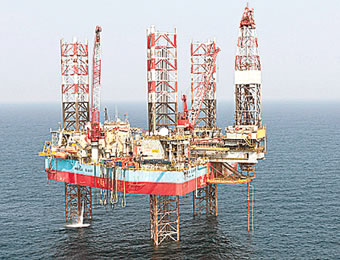INDUSTRY experts as well as players believe that despite what could be happening in the oil industry globally, the responsibility for giving direction to the Nigerian oil and gas sector rests on the government. Its actions or inactions will ultimately determine how well the industry fares.
According to energy experts who attended recently concluded Nigeria Oil and Gas (NOG) Conference in Abuja, there is an urgent need for government to resolve with speed and finality, lingering issues that have slowed down investment in the sector.
Oil revenue has over the years become a major source of funds for the country’s budgets. Despite being a major revenue source for the country, the sector according to experts is being driven by outdated laws and regulations that need to be overhauled.
For the oil and gas sector to become attractive and profitable to investors, its antiquated framework has to be updated to address current industry realities.
“The current law and regulatory framework is not responsive enough. The sector is being governed by outdated legal and regulatory framework. We have to re-examine the continued relevance of existing framework,” said an energy analyst.
Expressing support for the need for urgent reforms in the sector, another expert and Chairman Africa, Schlumberger, Mr Sola Oyinlola, said the present government should put in place or implement policies that would spur growth in the industry.
According to him, “The Buhari administration has its work cut out for it and the industry awaits with bated breath any new policy directions, but we are all optimistic that challenges would be tackled expeditiously to provide a new dynamic investment destination.”
However, despite uncertainties in the operating environment, recent accomplishments by some operators in the oil and gas industry have further demonstrated that there are still untapped opportunities in the sector.
These opportunities are demonstrated by successes recorded from Erha North Phase II project which is one of the flagship projects executed by US oil giant, ExxonMobil.
The project is a deepwater subsea development located 60 miles offshore Nigeria in 3,300 feet of water and four miles north of the Erha field. The field has been producing since 2006. According to the oil firm, the project which was completed five months ahead of schedule and under its initial budget was a clear demonstration of its disciplined project management approach and expertise.
“Executing successful projects such as Erha North Phase 2 ahead of schedule and under budget results from ExxonMobil’s disciplined project management approach and expertise. We are able to create additional shareholder value by optimising existing infrastructure, which reduces capital spending requirements and improves capital efficiency,” said Neil W. Duffin, President of ExxonMobil Development Company.
More than N50 billion has been invested in Nigeria for Erha North Phase 2, bringing direct and indirect benefits to the Nigerian economy through project spending and employment, consistent with project objectives.
Since completion, Erha North Phase II project has delivered additional 165 million barrels per day of crude to Nigeria with a peak production of 65,000 barrels per day.
Equally, the project was delivered with 63 per cent Nigerian content translating to 74 per cent Nigerian content man-hours which accounted for over $2 billion of project investment for goods and services. According to ExxonMobil, the project further demonstrates its contribution to and support for Nigeria’s long-term goal of increasing its oil production volumes.
Energy experts believe the successes recorded by ExxonMobil on the project could be replicated on its recent oil find in Owowo field given the right operating environment. For such a huge project as Erha North Phase II to be completed despite the harsh operating environment, the Owowo oil field exploration could be a monumental success with the right policies in place.
The company last October announced the discovery of Owowo oil field which it projected to hold over 1 billion barrels of crude oil reserves and over N3 trillion in potential revenue to Nigeria. Experts reckon that the oil field discovery has brought new hopes to the Nigerian economy especially at a time when new investments in upstream operations were shrinking. The discovery came as a morale booster for the industry especially as Nigeria’s reserve replacement ratio has been on the downward trend.
The Owowo oil field has the potential to provide new employment opportunities for Nigerians once production starts. The implication of this is enhanced living standards for some households and revenue to government in form of taxes and royalties. But this can only be accomplished in a business-friendly environment.




